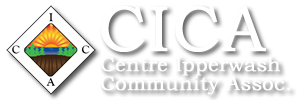History of Phragmites australis

History of Phragmites australis
- Are native to Eurasia.
- Have been present in North America for at least 300 years.
- Probably introduced accidentally to North America in ballast material sometime during the late 1700s or early 1800s.
- First observed in Ontario along the St. Lawrence River in 1916.
- Later found at Walpole Island in Lake St. Clair in 1948.
- Rapid expansion occurred during the 1990’s.
- Reasons for dramatic increases could be due to:
- Habitat disturbances,
- Improper removal of dead Phragmites plant material,
- Stresses such as pollution,
- Increased wetland salinity from road de-icing salts,
- Contamination from equipment travelling from site to site,
- Changes in local water systems and seasonal temperatures.
- This robust grass is now established in most Lake Erie and Lake Huron wetlands.
- It is getting a foot hold in Lake Superior coastal habitats.
- It wasn’t until 2005, that Agriculture and Agri-food Canada identified invasive Phragmites as the nation’s “worst” invasive plant.
Sources:
Ontario Phragmites Working Group: www.opwg.ca
